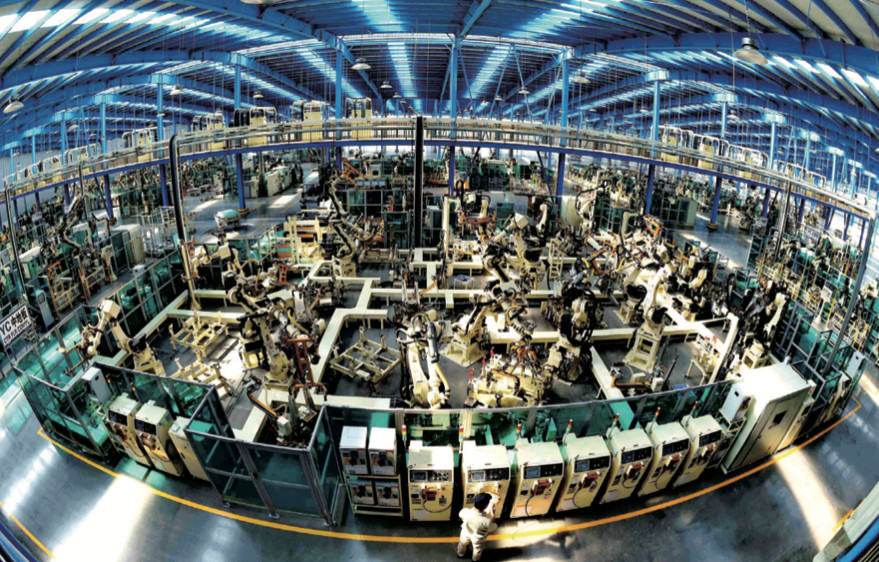Smart Logistics uses Machine Intelligence (MI) instead of Artificial Intelligence (AI)
“Smart Logistics” refers to the application of Internet of Things technology to realize the extension of the Internet to the physical world, the integration of Internet and logistics entities, and the realization of the state awareness, real-time analysis and accurate execution of the logistics system, further achieving independent decision-making and learning improvement. A modern logistics system with certain intelligence capabilities. After a series of researches on the technical architecture and theoretical system of smart logistics, the three-layer technical architecture standard of smart logistics was put forward, and the intelligent logistics theory system based on intelligent logistics brain thinking system, intelligent logistics information transmission system and intelligent logistics execution system was established.
In the process of researching intelligent logistics, the application of artificial intelligence is an inseparable topic. Based on the wisdom emergent principle of artificial intelligence, the author analyzes the wisdom source of smart logistics and applies some artificial intelligence in smart logistics. explore. In the research process, it is found that although artificial intelligence has many applications in the logistics industry, in terms of the current smart logistics system, the main driving force for the transformation and development of smart logistics should be machine intelligence (MI) rather than artificial intelligence (AI).
At present, there is a lot of domestic artificial intelligence. In the field of logistics, there are many experts who pay attention to the application of artificial intelligence in the development of smart logistics. However, most experts have a misunderstanding of the concept of artificial intelligence (AI). The theoretical system of machine intelligence (MI) Application in the logistics industry is still in the research gap. Many experts lack definitional analysis of artificial intelligence and machine intelligence concepts, often confusing the difference between artificial intelligence (AI) and machine intelligence (MI).
So, what exactly is artificial intelligence? What is machine intelligence? What is the difference between artificial intelligence and machine intelligence? What impact does machine intelligence have on the smart logistics system? How does machine intelligence drive smart logistics transformation? Below, the author throws bricks to attract jade, puts forward some opinions and opinions, and discusses with you.
Artificial Intelligence (AI) refers to a new technical science that studies and develops theories, methods, techniques, and applications for simulating, extending, and extending human intelligence. Artificial intelligence attempts to understand the essence of human intelligence and produce a new intelligent machine that responds in a similar way to human intelligence; research in this area includes robotics, speech recognition, image recognition, natural language processing, and expert systems. That is to say, the focus of artificial intelligence is the simulation and realization of the information process of human consciousness and thinking.
According to the definition and research scope of artificial intelligence, artificial intelligence mainly refers to letting the machine imitate the intelligence of human beings, so that the artificially manufactured system can think like human beings, that is, "let the machine become a human being". Since the beginning of artificial intelligence, three major schools have been formed. One is symbolism. Its principle is mainly the assumption of physical symbol system (ie symbolic operating system) and the principle of limited rationality. The second is connectionism. The main principle is neural network and neural network. The connection mechanism and learning algorithm; the third is behaviorism, the principle is cybernetic and perceptual-action control system.
In practice, we found that the machine system is very different from the human intelligent system. The machine system has many characteristics that humans do not have. Why can we not let the machine system think according to its own characteristics and give full play to the advantages of the machine system itself? What about the development of machine intelligence (MI)?
Based on the above considerations, the author defines machine intelligence (MI) as: unique capabilities based on machine system perception, calculation, learning, analysis, etc., through ubiquitous state perception, comprehensive communication of information interaction, big data and cloud computing Processing analysis allows the machine system to learn independently, conduct independent analysis, make decisions on its own, and continuously iterate and upgrade. In many ways, the author believes that current machine intelligence has far surpassed human intelligence.
Let the machine become a smart machine, instead of making the machine a "robot", the machine intelligence (MI) technology concept built on this basis is more conducive to the development and transformation of smart logistics. Smart logistics is based on the application of Internet of Things technology, realizing the extension of the Internet to the physical world, integrating the innovation of the Internet and logistics entities, realizing the state perception, real-time analysis and precise execution of the logistics system, further achieving independent decision-making and learning improvement, and possessing certain intellectual capabilities. Modern logistics system. This smart logistics system is strictly a complex machine intelligence system.

Machine intelligence (MI) is the extension and development of machine automation. We must respect the ability of the machine to transcend human beings in some aspects, push the machine to think in its own way, let the machine system produce intelligence that is not possessed by humans and animals, let the machine To do things that humans can't do, this is a typical machine intelligent thinking.
From another perspective, we hope that machines can have a sense of autonomy, can learn knowledge independently, and handle work automatically, but we don't want the machine thinking system to have self-awareness, human emotion intelligence, and self-emotional consciousness and struggle thinking. Because once the machine is self-aware, at the level of machine intelligence, we humans will be controlled by the machine and become pets or playthings of the machine system.
Reprinted from the network


